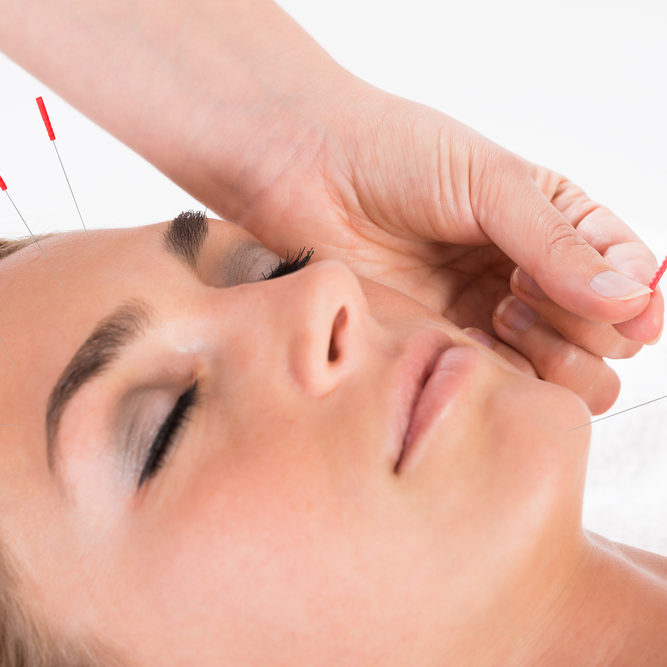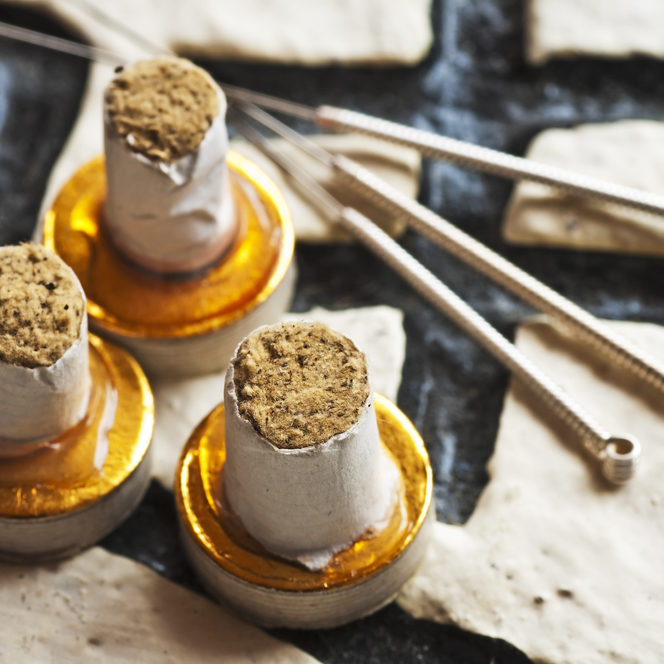Acupuncture for Allergies
Acupuncture has been found to relieve pain for some patients. The latest study suggests that it may help relieve allergy symptoms as well.
Most patients plagued with seasonal allergy symptoms turn to antihistamines for treatment, but when they don’t get relief, some are willing to try alternative treatments like acupuncture. Acupuncture is where small needles are inserted under the skin to reduce or eliminate certain symptoms.
In a study published in the journal Annals of Internal Medicine, researchers evaluated 422 people who experienced pollen allergies and had allergic nasal symptoms such as a runny nose. The participants identified their symptoms and the medications they used for treatment. The researchers then separated the participants into three different groups; one received 12 acupuncture treatments and took antihistamines as needed, a second group received 12 fake acupuncture treatments (the needles were placed at random, non-meaningful points in the body) and took antihistamines as needed, while the last group only took antihistamines for their symptoms.
After two months, the researchers asked the patients to report on their symptoms and how much antihistamine medication they used. The participants who received the real acupuncture treatments along with their antihistamines showed a greater improvement in their allergy symptoms and lower use of the antihistamines compared to the other two groups. The participants receiving fake acupuncture therapy also reported some relief of their symptoms, which suggested a strong placebo effect may be responsible for at least part of the improvement.
That observation was supported by the fact that after four months of follow-up, the difference between the groups was less noticeable. The researchers hypothesize that the patients’ expectations of the potential acupuncture might help, could have influenced their reports of the improved symptoms. If the treatments are providing some relief, then acupuncture’s potential role in treating allergies should be investigated further, the authors suggest. “The effectiveness of acupuncture for [seasonal allergies] compared with other antiallergic interventions and the possible underlying mechanisms of any effect, including context effects, need to be addressed in further research,” they write in the study.
This is also supported by Dr. Remy Coeytaux of the Duke Clinical Research Institute and Dr. Jongbae J. Park of the Regional Center for Neurosensory Disorders and University of North Carolina at Chapel Hill. Coeytaux and Park wrote an editorial along with the study. They note that acupuncture’s benefits have started to develop over the last 15 years and enough high-quality clinical trials support “patient-level meta-analyses for several clinical indications.” They suggest that more thorough research, which would include comparing acupuncture with existing treatments for conditions such as allergies, should be completed to determine the outcome.
In the meantime, study author Dr. Benno Brinkhaus of the Institute for Social Medicine, Epidemiology and Health Economics at Charité University Medical Center in Berlin wrote a response describing the study that “From my experience as a physician and acupuncturist, and as a researcher, I would recommend trying acupuncture if patients are not satisfied with the conventional anti-allergic medication or treatment or they suffer from more or less serious sides effects of the conventional medication. Also because acupuncture is a relative safe treatment.” Until more rigorous studies identify the effects acupuncture may have on allergy symptoms, we may not know for sure whether acupuncture is an effective treatment option.
Enjoy Even More Articles on Acupuncture Chicago Loop and how we can help :
- Acupuncture for Sleeping
- Acupuncture for Smoking
- Acupuncture for Allergies
- Acupuncture for Arthritis
- Acupuncture for Depression
- Acupuncture for Energy
- Acupuncture for Stress & Anxiety
- Acupuncture for Vertigo
- Acupuncture for Acne
- Acupuncture for Drug and Alcohol Addiction
- Acupuncture for Sciatica
- Acupuncture for Neck pain
- Acupuncture for Plantar Fasciitis
- Acupuncture for Carpal Tunnel
- Acupuncture for Knee Pain
Services We Offer : Conveniently Located in the Chicago Loop
Sunae Son, L.Ac, M.S.O.M. has spent much of her life exploring and researching western and eastern medicines, combining these practices over a decade of field and laboratory studies into mindful patient care in acupuncture and Traditional Chinese Medicine.




